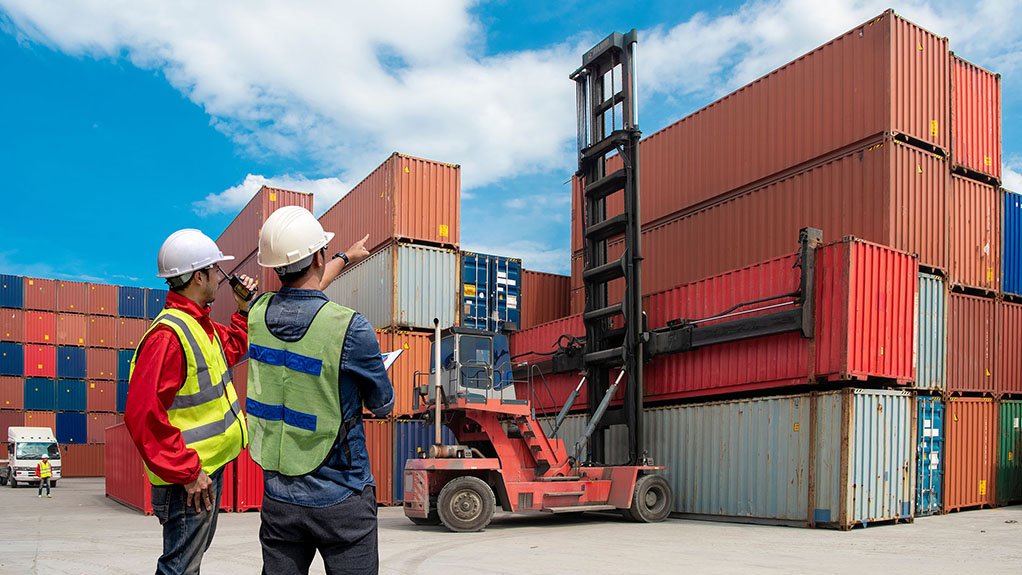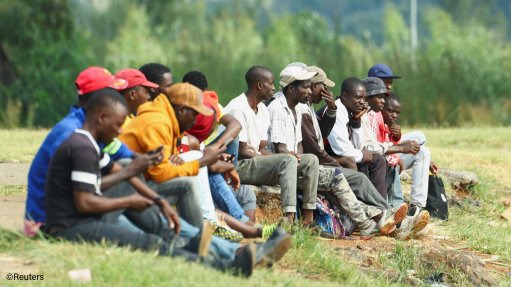Unresolved problems dog manufacturing



MAKING MOVES The country needs a steady 4% to 5% GDP growth rate for a couple of years to grow the economy
KEEPING IT LOCAL South Africa’s objectives at the fifteenth Brics Summit should be to reinforce support for countries willing to buy goods from South Africa
The machinery and capital equipment industry is “very quiet” and many businesses are reluctant to spend on marketing or new procurement, owing to challenges such as power failures, water cuts, crime, protests and logistics disruptions, says industry organisation South African Capital Equipment Export Council (SACEEC) director and CEO Eric Bruggeman.
Vandalism of State-owned freight company Transnet’s infrastructure is affecting logistics while bureaucratic problems at border posts exacerbate the issues encountered by businesses in the sector.
He adds that a combination of challenges is affecting businesses, which has a ripple effect on the procurement and supply chain.
South Africa no longer has the equipment stock levels it used to have, owing to the global lockdowns during the Covid-19 pandemic, particularly with business disruptions in China, which led to “sky-high shipping costs”, after pandemic restrictions eased.
He highlights that disruptions, riots and the recent floods at the Durban harbour, in KwaZulu-Natal, resulted in cargo having to be redirected to the ports in Gqeberha or Cape Town.
Countries at the border are affected the most, owing to the pressure and problems at border gates, while the performance of the industry is reflected in businesses’ order books.
Previously, order books had one year’s to 18-months’ worth of orders; currently, they have orders for periods of only one or two months, indicating that businesses are “merely surviving, not thriving”, adds Bruggeman.
In contrast to the limited business activity in South Africa, companies in Canada and Australia, as well as those in South America and Europe, are gaining by exporting to Africa.
“I think there’s a transition that South African companies must go through to develop other products and find markets in which to flourish. Over the past couple of years, mining did not do well – in fact, production slowed down. There aren’t any new shafts opening and some shafts have closed, and given mining’s importance to the country, the economy has slowed down as well.”
He adds that SACEEC members with footholds in the rest of Africa, such as Namibia, Botswana, Zambia, Kenya and the Democratic Republic of Congo, are performing relatively well, despite the lull in the market.
BRICS Summit
There is uncertainty about the direction the manufacturing industry will take following the outcome of the fifteenth Brazil, Russia, India, China and South Africa (BRICS) Summit, which was held from August 22 to 24, in South Africa, expresses Bruggeman, noting that the country does not export much to other BRICS countries.
South Africa does not export to Brazil – the double taxation laws make exporting “very expensive” – China and India – these nations are “manufacturing giants”. It does not export to Russia either, as Russia has most of the minerals that South Africa exports.
Further, he argues that “South Africa’s problem is not an unemployment problem but an import problem. We import about R13-trillion a year worth of products from China, and if we imported a lot less and manufactured a lot more, we’d be able to employ a lot more people”.
“Remember, when importing, you are actually employing people in another country, so the more you import, the more people we employ around the world, except in South Africa, and that is the problem.”
Consequently, Bruggeman stresses that the country’s inclination to buy the cheapest imported goods is one of the major causes of unemployment, and suggests that one of South Africa’s objectives following the BRICS Summit should be the reinforcement of support for countries that are willing to buy locally manufactured goods.
Growing the Economy
Contrary to popular belief, South Africa has the necessary skills and appetite for manufacturing, but there is not enough activity in the market, which, in turn, translates into the industry producing fewer job opportunities, even for those with the requisite skills, Bruggeman says.
Small and medium-sized enterprises are not established in the manufacturing sector, owing to the cost of machinery and equipment, the expenses incurred in acquiring International Organisation for Standardisation certification, as well as meeting all the necessary quality standards and specifications required for manufacturing facilities.
“When the gross domestic product (GDP) growth rate is at -0.2% or 0.2% . . . it means the economy is not growing . . . there isn’t sufficient work in the country to keep everybody busy. The country needs a GDP growth rate of at least 4% to 5% over a couple of years to grow,” he adds.
He concludes that the informal sector in South Africa is booming because people do not have jobs and are forced into starting small businesses in their various communities but that they are merely surviving, as there is very little room for growth in this sector.
Article Enquiry
Email Article
Save Article
Feedback
To advertise email advertising@creamermedia.co.za or click here
Press Office
Announcements
What's On
Subscribe to improve your user experience...
Option 1 (equivalent of R125 a month):
Receive a weekly copy of Creamer Media's Engineering News & Mining Weekly magazine
(print copy for those in South Africa and e-magazine for those outside of South Africa)
Receive daily email newsletters
Access to full search results
Access archive of magazine back copies
Access to Projects in Progress
Access to ONE Research Report of your choice in PDF format
Option 2 (equivalent of R375 a month):
All benefits from Option 1
PLUS
Access to Creamer Media's Research Channel Africa for ALL Research Reports, in PDF format, on various industrial and mining sectors
including Electricity; Water; Energy Transition; Hydrogen; Roads, Rail and Ports; Coal; Gold; Platinum; Battery Metals; etc.
Already a subscriber?
Forgotten your password?
Receive weekly copy of Creamer Media's Engineering News & Mining Weekly magazine (print copy for those in South Africa and e-magazine for those outside of South Africa)
➕
Recieve daily email newsletters
➕
Access to full search results
➕
Access archive of magazine back copies
➕
Access to Projects in Progress
➕
Access to ONE Research Report of your choice in PDF format
RESEARCH CHANNEL AFRICA
R4500 (equivalent of R375 a month)
SUBSCRIBEAll benefits from Option 1
➕
Access to Creamer Media's Research Channel Africa for ALL Research Reports on various industrial and mining sectors, in PDF format, including on:
Electricity
➕
Water
➕
Energy Transition
➕
Hydrogen
➕
Roads, Rail and Ports
➕
Coal
➕
Gold
➕
Platinum
➕
Battery Metals
➕
etc.
Receive all benefits from Option 1 or Option 2 delivered to numerous people at your company
➕
Multiple User names and Passwords for simultaneous log-ins
➕
Intranet integration access to all in your organisation




















